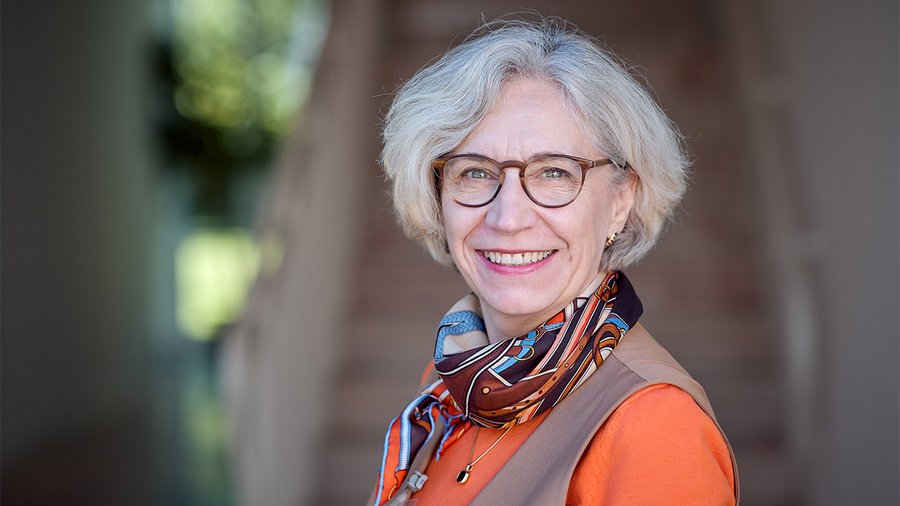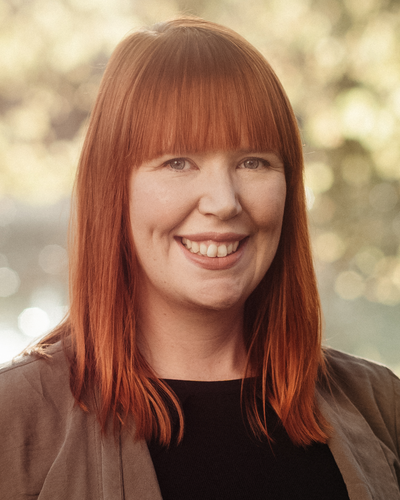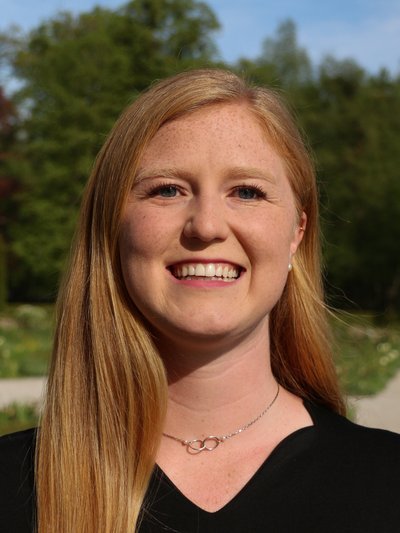Martina Kohl shares her fictional memoir “Family Matters” and the power of storytelling in bridging cultures and generations
Martina Kohl is a public diplomacy practitioner, scholar, writer, and teacher. In March 2023, she concluded a thirty-year career as a cultural affairs specialist at the U.S. Embassy in Berlin, Germany. Her book "Family Matters", a fictional memoir, was published by PalmArtPress Berlin (English & German) in the spring of 2023.
This interview has been edited for length and clarity.
Audrey Plimpton, Salzburg Global Communications Associate: Can you tell me about your new book “Family Matters”?
Martina Kohl, Writer and Lecturer, Humboldt Universität: It's a story about a family [over] four generations. It's [about] moving between the two worlds. German immigrants meet in Manhattan, the couple gets married, [and] they have a kid. The father decides "We're moving back to Germany", which does something to the family because while he recalls Germany as he emigrated as a young man, his wife left Germany with her family when she was a toddler. She has no memory of the old country. Then there's the nine-year-old son who was plucked out of his environment and from Manhattan to a little village. That's how the story starts. What does it do to the family members? What does it do to the wife who doesn't have a choice? She has to come along, or she will lose her son because a woman at that time, about 1900, doesn't have a right to her own son. Then [there is] the next generation, where the daughter of that little boy marries a G.I. It's a very German story, but it's also wherever the troops were stationed. So, she decides she's moving to the US, [and] she's becoming an American. That is a very interesting story, this fascination with America and at the same time asking yourself the question, as all these generations do: "Where do I belong? What does home mean to me? What is the consequence of such a decision like going back? Which is going back for what? For one person, but not for the other? What consequences does a decision bring about?" When you don't make a decision, it also has consequences. I'm playing with that over four generations- this fascination and at the same time homesickness and this back-and-forth push and pull between these two countries.
AP: What was the key inspiration for your book?
MK: My book has its roots in family history, and it really happened that that family came back to Germany and made a very unhappy person out of my great-grandmother. I didn't know more about her than that. I always wondered, "What was it like for her?", because these are ordinary people in my book. They didn't keep papers. They didn't keep letters. You know, they were just ordinary people, but big things happened to them, or they made big decisions that affected the family and the next generation and the next. That fascinated me and I wanted to give that woman a voice, which she had lost. I wrote the book in English because she had to give up her language. That's how it all started, and then I filled in the blanks. That's why it's a fictional memoir. I imagine what it was like for these people, and also for the little boy. I wanted to write this book about the women in the family, and then this little boy kept demanding to be heard because he's the only person who knows everybody in the book. I played with that, and for me, it was important to take these people seriously and to try to imagine what it was like for them at the time. That was really interesting.
AP: How can literature be used to promote intercultural understanding?
MK: I think in order to understand the other, whatever it might be, we need to develop some kind of understanding for the other. Storytelling can do that, and what you get then is empathy. Empathy opens the heart. It's "I see you as a human being. Through your story, I understand something larger", and that is the power of storytelling. We can relate. We can explain. I can understand or begin to understand another culture, [and] another way of thinking. Humans are suckers for stories. That's part of the human story, that we relate to each other by telling stories. It might be gossip that we're exchanging, but we're learning something about each other. Writing is absolutely crucial because it opens up the world for us and makes us relate to other human beings.
AP: In discussions of borders and migration during this American Studies program on “Borders, Boundaries, and the Future of Democratic Pluralism”, what do you think the US can learn from Germany and vice versa?
MK: Well, let me give you one example. Let's say you take a cab in New York and the driver has a heavy accent. Americans would not question that this person is an American. In Germany, if somebody has a heavy accent, that person gets asked, 'Where are you from?' all the time and that's a fundamental difference. There's this country, the United States, that has defined itself as an immigrant nation and Germany has not. That you can still sense today… the makeup of German society has changed dramatically and we could learn a bit more. We could take on this openness that American society has that we don't quite have. On the other hand, Germany is pretty good at supporting incoming immigrants. The social safety net is totally different from in the States… I think the German state, the German system, does that pretty well, that people get training, that kids can go to school, that there is some kind of funding there that tides them over until they're ready for the job market.
AP: How do you think the discussions from this program can inform your current and future work?
MK: It's getting all these different perspectives. There's so much to learn [about] how people look at the world, how they see things differently, to realize that we might have a limited viewpoint… To me, it's fascinating to listen to other people's stories. When I do readings from my book, it's a family story. Then people come up to me and tell me their story. I have breakfast with somebody here, [and] they tell me their story and there's always something you can relate to. This program does what literature does- you have access to somebody that you wouldn't have otherwise. It's very, very special.
Martina serves on the advisory board of the Salzburg Global American Studies Program and attended the program on “Borders, Boundaries, and the Future of Democratic Pluralism” from September 19-23, 2023. The 2023 Salzburg Global American Studies Program focused on the contestations and renegotiations of boundaries beyond the nation-state, and how they are changing the representation of democratic pluralism.
Learn more about Martina’s book “Family Matters” here.





